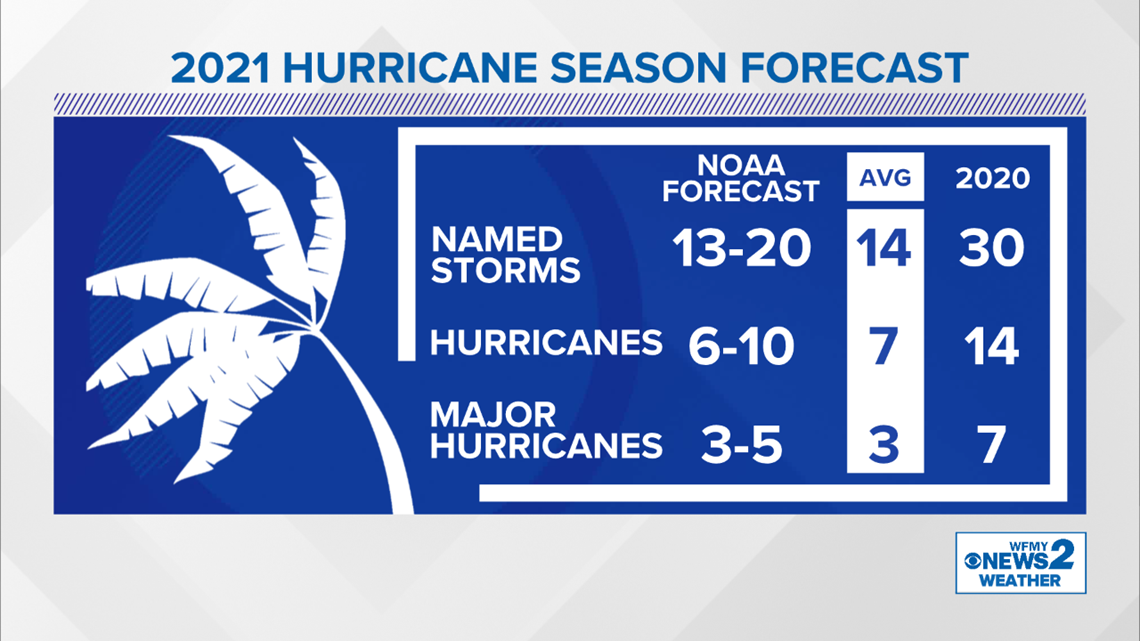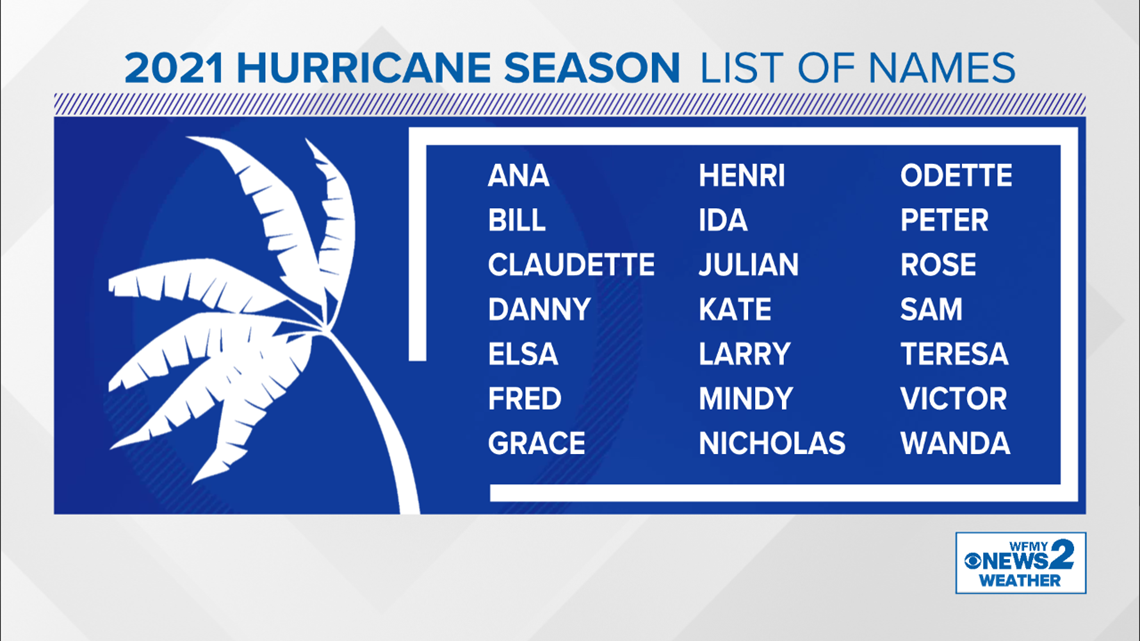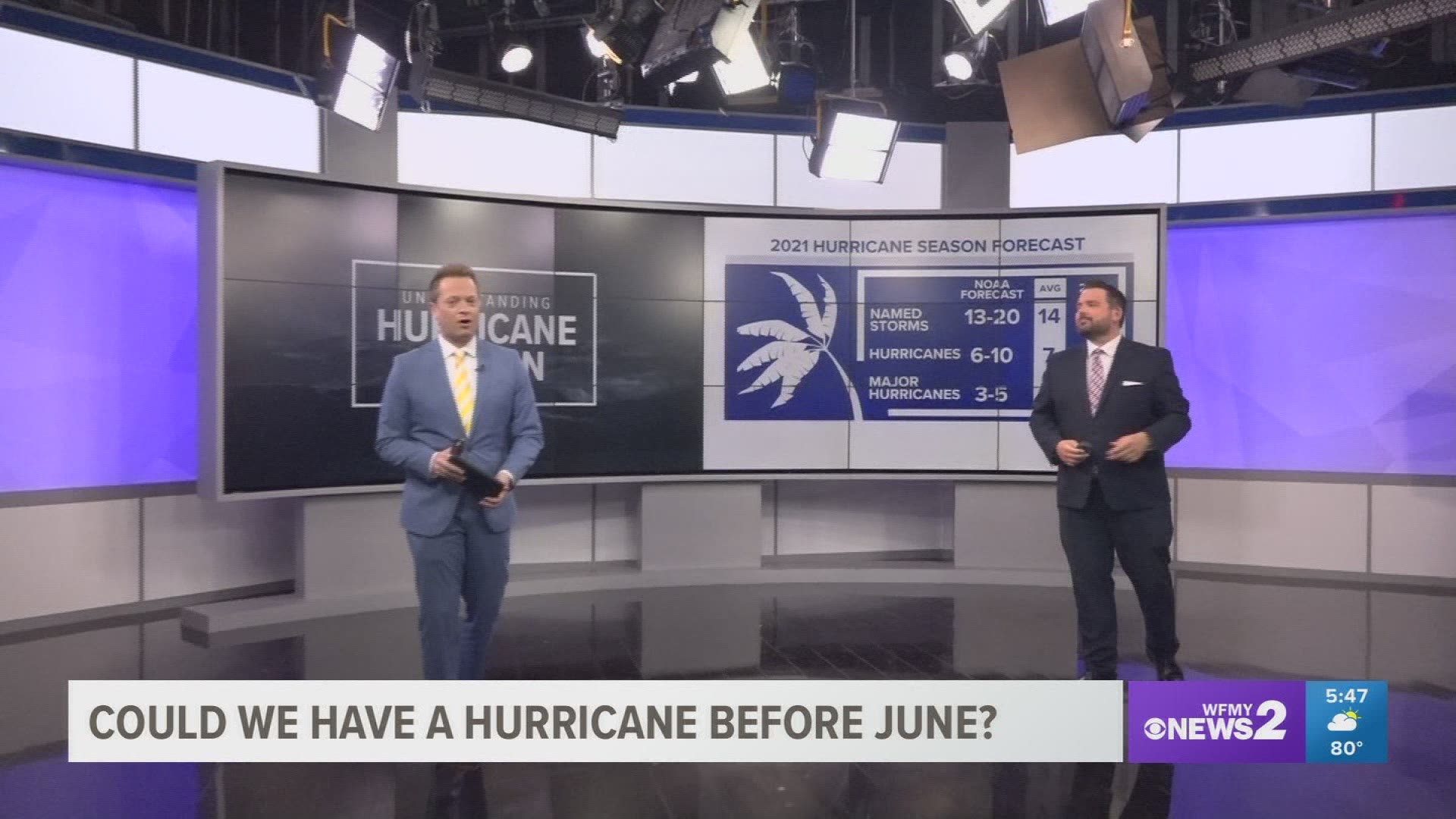GREENSBORO, N.C. — It seems like we just ended the historic 2020 hurricane season, but it's already time to think about the 2021 season, which starts coming up in June.
Today, NOAA announced their forecast for this upcoming season. This forecast is based on an analysis of large-scale weather and ocean patterns.
NOAA 2021 Hurricane Season Forecast
- Named Storms: 13-20
- Hurricanes: 6-10
- Major Hurricanes: 3-5


In a typical year, we'd expect 14 named storms with 7 of them becoming hurricanes, and 3 of those developing into major hurricanes. This is based on what we call climatological averages, which is just the average of the hurricane seasons over the past 30 years (1991-2020).
That means that this year we are expecting an above-average season.
At the end of the day, remember it just takes one storm hitting your area to cause issues for you and your family, so it's best to get prepared now, no matter if it's an active season or not.
“Although NOAA scientists don’t expect this season to be as busy as last year, it only takes one storm to devastate a community,” said Ben Friedman, acting NOAA administrator. “The forecasters at the National Hurricane Center are well-prepared with significant upgrades to our computer models, emerging observation techniques, and the expertise to deliver the life-saving forecasts that we all depend on during this, and every, hurricane season.”
One of the big factors that goes into a forecast is whether we are in an El Nino pattern or a La Nina pattern. El Nino favors a less busy season, while a La Nina favors a more busy season like we saw last year. This year we have neither of those. In a neutral year, an at or above-average hurricane season is usually expected.
Here’s a list of 15 things to do before a hurricane hits with tips provided by North Carolina Emergency Management.
- Build an emergency kit.
- Make a family communications plan.
- Know you’re the routes you need to leave your home (evacuation routes). Locate your local emergency shelters.
- Closely watch/listen to the weather reports. Listening every hour as the storm nears.
- Put fuel in all vehicles and withdraw some cash from the bank. Gas stations and ATMs may be closed after a hurricane.
- If authorities ask you to leave, do so quickly.
- If you leave (evacuate), be alert to flooded or washed-out roads. Just a few inches of water can float a car. Think: Turn Around, Don't Drown.
- Keep a photo I.D. that shows your home address. You will need it when asking police if it is okay for you to re-enter your area or home.
- Secure your property.
- Bring inside all outdoor furniture, decorations, garbage cans and anything else that is not tied down.
- Cover windows with permanent storm shutters or board up windows with 5/8” plywood, cut and ready to install. Tape does not stop windows from breaking.
- Put in straps or extra clips to securely fasten your roof to the frame structure. This will lower roof damage.
- Trim trees and shrubs around your home, so they are more wind resistant.
- Clear clogged rain gutters and downspouts.
- Reinforce garage doors. If wind enters a garage it can cause dangerous and expensive structural damage.
The list of names for the 2021 hurricane season has been released and can be viewed below. This year, if the list of named is exhausted, an alternate list of names will be used. In the past, the Greek alphabet was used.


While forecasters can look at a season and determine whether or not it's likely to be busy or not, it's not easy to know where storms will form and where they will go. So, it's best for us in North Carolina to be prepared and then just track each storm when it forms. The WFMY News 2 Weather Team will keep you up to date throughout the summer and fall.
For more tips, check out this link:
Hurricane season runs from June 1st to November 30th.

